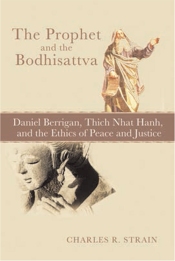 A scholarly journal devoted to Buddhism and Christianity and their historical and contemporary interrelationships, Buddhist-Christian Studies presents thoughtful articles, conference reports, and book reviews. It also includes sections on comparative methodology and historical comparisons, as well as ongoing discussions from two dialogue conferences: the Theological Encounter with Buddhism, and the Japan Society for Buddhist-Christian Studies.
A scholarly journal devoted to Buddhism and Christianity and their historical and contemporary interrelationships, Buddhist-Christian Studies presents thoughtful articles, conference reports, and book reviews. It also includes sections on comparative methodology and historical comparisons, as well as ongoing discussions from two dialogue conferences: the Theological Encounter with Buddhism, and the Japan Society for Buddhist-Christian Studies.
Submission guidelines for BCS are available online.
 The Journal of Daoist Studies (JDS) is an annual publication dedicated to the scholarly exploration of Daoism in all its different dimensions. Each issue has three main parts: Academic Articles on history, philosophy, art,society, and more (limit 8,500 words); Forum on Contemporary Practice on issues of current activities both in China and other parts of the world (limit 5,000 words); and News of the Field, presenting publications, dissertations, conferences and websites.
The Journal of Daoist Studies (JDS) is an annual publication dedicated to the scholarly exploration of Daoism in all its different dimensions. Each issue has three main parts: Academic Articles on history, philosophy, art,society, and more (limit 8,500 words); Forum on Contemporary Practice on issues of current activities both in China and other parts of the world (limit 5,000 words); and News of the Field, presenting publications, dissertations, conferences and websites.
For submission guidelines please contact daojournal@gmail.com.
 The Journal of Korean Religions is the only English-language academic journal dedicated to the study of Korean religions. It aims to stimulate interest in and research on Korean religions across a range of disciplines in the humanities and social sciences. Launched in 2010 by the Institute for the Study of Religion at Sogang University in Korea, it is peer-reviewed and published twice yearly, in April and October.
The Journal of Korean Religions is the only English-language academic journal dedicated to the study of Korean religions. It aims to stimulate interest in and research on Korean religions across a range of disciplines in the humanities and social sciences. Launched in 2010 by the Institute for the Study of Religion at Sogang University in Korea, it is peer-reviewed and published twice yearly, in April and October.
Submission guidelines for JKR are available online.
Promoting academic literacy on non-Western traditions of philosophy, Philosophy East  and West has for over half a century published the highest-quality scholarship that locates these cultures in their relationship to Anglo-American philosophy. Philosophy defined in its relationship to cultural traditions broadly integrates the professional discipline with literature, science, and social practices. Each issue includes debates on issues of contemporary concern and critical reviews of the most recent publications.
and West has for over half a century published the highest-quality scholarship that locates these cultures in their relationship to Anglo-American philosophy. Philosophy defined in its relationship to cultural traditions broadly integrates the professional discipline with literature, science, and social practices. Each issue includes debates on issues of contemporary concern and critical reviews of the most recent publications.
Submission guidelines for PEW are available online.

For more information on the University of Hawai`i Press and our journal publications, visit www.uhpress.hawaii.edu/journals. To receive table-of-contents email alerts for these publications, please click here to sign up at Project MUSE.







 Established in 1947, the University of Hawai`i Press supports the mission of the university through the publication of books and journals of exceptional merit. The Press strives to advance knowledge through the dissemination of scholarship—new information, interpretations, methods of analysis—with a primary focus on Asian, Pacific, Hawaiian, Asian American, and global studies. It also serves the public interest by providing high-quality books, journals and resource materials of educational value on topics related to Hawai`i’s people, culture, and natural environment. Through its publications the Press seeks to stimulate public debate and educate both within and outside the classroom.
Established in 1947, the University of Hawai`i Press supports the mission of the university through the publication of books and journals of exceptional merit. The Press strives to advance knowledge through the dissemination of scholarship—new information, interpretations, methods of analysis—with a primary focus on Asian, Pacific, Hawaiian, Asian American, and global studies. It also serves the public interest by providing high-quality books, journals and resource materials of educational value on topics related to Hawai`i’s people, culture, and natural environment. Through its publications the Press seeks to stimulate public debate and educate both within and outside the classroom.
 About the Journal
About the Journal
